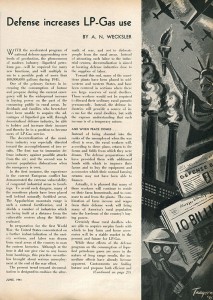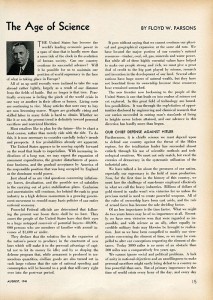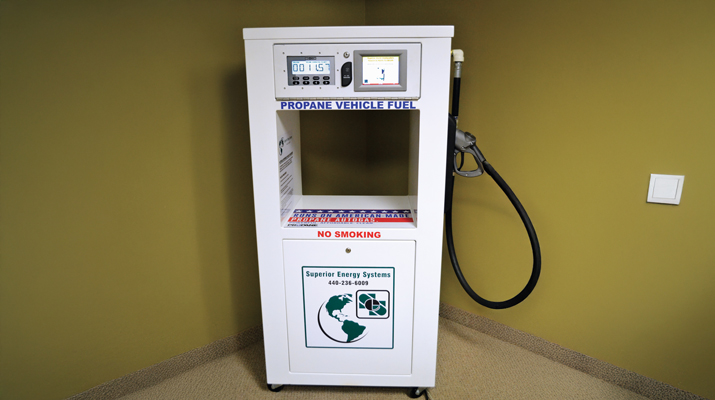Propane in wartime
World War II influences LP gas consumption
Politics and current events seemed a little hectic in 1941 during LP Gas’ inaugural year. World War II impacted supply-and-demand needs in the United States. These needs influenced the propane and fuel industries in particular, as those industries needed to produce the fuels to aid with increased business in the states and overseas.
According to an article in the June 1941 issue of LP Gas, many munitions plants were being built in rural areas of the Midwest and Western states to aid in wartime efforts. With more rural residents in the U.S., more people turned to LP gas as a fuel source.
The article says, “With the accelerated program of national defense approaching new levels of production, the phenomenon of modern industry – liquefied petroleum gas – will be required for many new functions and will multiply in use to a possible peak of more than 400,000,000 gallons during 1941.” In addition, a “primary [factor] in increasing the consumption of butane and propane during the … emergency [was] the widespread increase in buying power on the part of the consuming public in rural areas.”
War hits ‘close to home’
Floyd Parsons, LP Gas’ editorial director at the time, wrote about political, economical and wartime issues in some of his columns during the magazine’s inaugural year. In August 1941, Parsons discussed the need for the industry to take the war seriously. According to Parsons, “All of us up until recently were inclined to take the war abroad rather lightly, largely as a result of our distance from the fields of battle. But no longer is that true. Practically everyone is feeling the pinch of the world crisis in one way or another in their offices or homes.” The industry as a whole could not avoid the social and political problems of the day, Parsons adds.


















